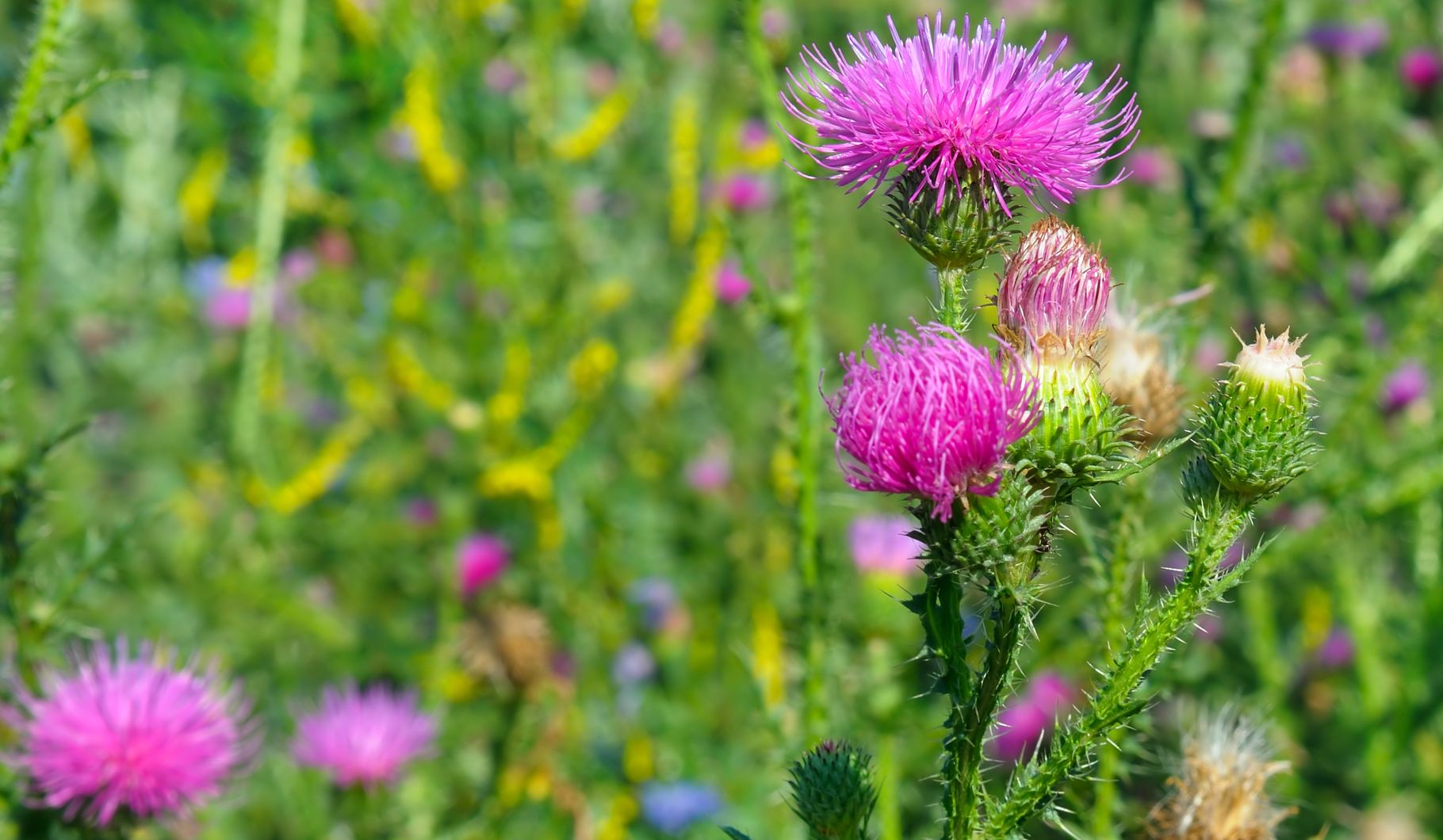


Milk thistle is used for many liver problems because of its ingredients. It is said to protect against liver damage and support liver detoxification. It is also a traditional remedy for indigestion. Read everything you need to know about the effects of the herb and how to use it properly!
What are the effects of milk thistle? Milk thistle fruit extracts are best known for their liver-protecting and liver-restoring effects. In traditional medicine, the herb has been used to treat liver diseases since ancient times.
liver diseases
According to research, the claimed positive effect on the liver is based on the fact that milk thistle extracts stabilize the cell membranes and thus prevent cell toxins such as alcohol from entering the liver cells.
In addition, they are said to stimulate cell renewal and have an antioxidant effect - i.e. they capture cell-damaging free radicals (aggressive oxygen compounds).
According to the European Association of Phytotherapy Societies (ESCOP), standard preparations of milk thistle can be used:
Toxic liver damage (eg, from alcohol or cricket toxins)
for the supportive treatment of chronic inflammatory liver diseases (such as hepatitis) and liver cirrhosis
The Special Committee of the European Medicines Agency - HMPC (Herbal Medicines Committee) - has recognized the use of milk thistle supplements as a traditional herbal medicine to support liver function.
The classification as conventional medicine means that the effectiveness in this area of application has not been sufficiently proven by clinical studies, but is credible. Additionally, milk thistle has been safely used for this purpose for at least 30 years.
Before taking thistles exclusively, the doctor must rule out severe liver disease! You should always discuss the appropriate treatment for liver problems with your doctor.
Cancer
There is evidence that a component of milk thistle (silibinin) may be effective against tumors. Some small studies also show that the herb can protect against cell damage caused by cancer treatments (chemotherapy, radiation therapy).
However, the possible effects of milk thistle on cancer need to be further investigated before any reliable statements can be made.
winds
Milk thistle can have a beneficial effect on the skin. Since the herb has anti-inflammatory and antioxidant properties, it can help with acne.
indigestion
As a traditional herbal medicine (according to the HMPC), milk thistle fruit powder and other supplements such as capsules can also be used to relieve digestive disorders such as bloating and gas.
Again, the judgment is based on the herb's traditional use for many years to treat such symptoms.
Ingredients in milk thistle
One of the most important ingredients in milk thistle is silymarin. It is a mixture of different so-called flavonolignans (e.g. silibinin).
How is milk thistle used? There are standard medicines based on milk thistle. Some people also use milk thistle tea.
Medicines against milk thistle
Liver protecting and liver restoring properties are found in the fruits of the plant. Only finished medicinal products with milk thistle extract, which have a very high content of silymarin, are really effective as liver protection.
Milk thistle capsules, tablets, juice, drops and tonic are available.
Refer to the package leaflet for proper use of the Distel medicine. Your doctor or pharmacist can also advise you on this.
The HMPC expert group recommends that only adults should take anti-lactobacilli medication.
milk thistle tea
Thistle tea made from dried fruits contains too little silymarin and therefore has no liver-protective effect. However, it can relieve symptoms caused by impaired bile flow in the liver. This will heal swelling, bloating, heartburn, or other digestive problems.
For the tea, one teaspoon each of fennel seeds and milk thistle are crushed in a mortar and poured into an eighth of a liter of hot water. Let the extract stand covered for ten minutes before straining off the plant parts.
You can drink one cup three to four times a day after each meal. The addition of fennel is recommended, since the taste of pure thistle tea is quite greasy.
What side effects can milk thistle cause? Sometimes milk thistle causes side effects in the form of allergic reactions (e.g. sudden itching and skin rash). This can especially happen in people who are usually allergic to daisy family (Asteraceae) such as arnica, chamomile, grasses or sage. Doctors then speak of a cross allergy.
After taking milk thistle products, mild side effects in the gastrointestinal tract such as stomach irritation and diarrhea sometimes occur.
You should bear this in mind when using milk thistle
Milk thistle tea or a ready-made preparation such as milk thistle drops or capsules with the medicinal plant can help with digestive problems caused by impaired bile production in the liver.
Severe liver diseases such as liver cirrhosis, hepatitis C or acute death cap poisoning may only be treated concomitantly with medicines containing milk thistle and always under medical supervision.
How to get milk thistle products
Dried thistle fruit and finished medicinal products such as capsules and tablets with thistle are available from your pharmacy or chemist. Ask your doctor or pharmacist about the use of milk thistle and also read the relevant leaflet.
What is milk thistle? The annual or biennial milk thistle (Silybum marianum) belongs to the daisy family. It is native to southern Europe, the Caucasus, Asia Minor and the Middle East, as well as North Africa and the Canary Islands. It is naturalized in many other countries.
Milk thistle likes to grow in warm and dry places. It is 60-150 centimeters long. Its large, green and white marbled leaves are lined with spear-like yellow spines.
Also characteristic of milk thistle is a spherical inflorescence with purple tubular flowers topped by lance-shaped bracts.
Brown-spotted fruits (colloquially known as milk thistle seeds) develop from the flowers. They have a hard shell and a silky white shiny ring of hair (papus). The latter acts as the fruit's flight organ.
Milk thistle is grown in various countries for medicinal purposes.
| Name: | Remember me |
| E-mail: | (optional) |
| Smile: | |